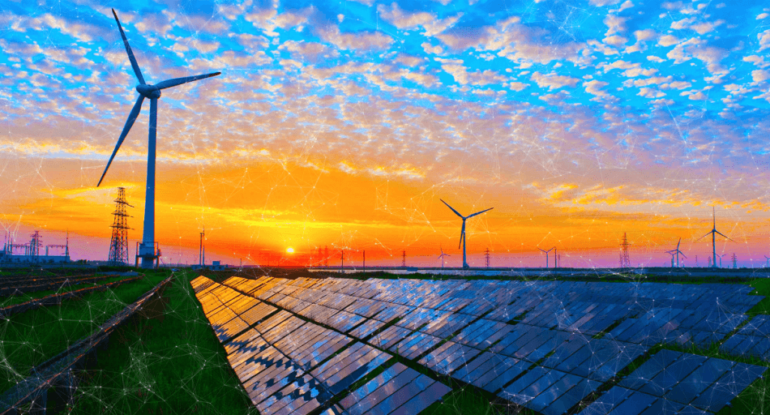Germany Employs Energy Web Blockhain to Collect Wind Energy in Batteries

Recently, the Energy Web Foundation (EWF) declared that German energy storage systems provider Sonnen Group is utilizing its Energy Web Chain and EW Origin software suite for a VPP (virtual power plant) in the country.
A VPP is a network of distributed and decentralized power generating units like wind farms, solar parks as well as storage systems. Sonnen’s VPP in northeastern Germany will leverage blockchain to consume surplus wind generation by charging batteries. When more renewable energy is produced than required, the waste is associated with curtailment.
According to data from S&P Global, Germany curtailed 3.2 TWh (Terawatt-hour) of wind energy in 2019. In 2018, the country decreased by 5.4 TWh of renewables. In an atmosphere when governments are seeking to develop a reliance on renewables, these figures are disturbing.
Sonnen will leverage a blockchain application developed utilizing EW Origin to match forecasted wind energy oversupply with storage capacity at the VPP. Once the network operator describes the anticipated surplus energy, sonnen’s VPP will provide to absorb some of it and utilize EW Chain for the financial settlement. The solution will use EW Dai, a stablecoin on the Ethereum network.
The German battery systems provider is employing a suite of software and technology from the EWF, named the Energy Web Decentralized Operating System (EW-DOS), an open-source stack of software and standards.
“EW-DOS focuses on two of the most important use cases for the world’s evolving electricity systems: enhancing renewable energy markets and leveraging distributed energy resources (DERs) to improve grid flexibility,” stated Micha Roon, CTO of EWF.
Recently, distributed energy resources (DERs) like electric vehicles, batteries, and smart appliances are not the focus of grid operators, possibly due to the immense cost.
Nevertheless, blockchain smart contracts clarify this process and can connect DERs to the central grid.
“With a flexibility market for renewable energies and the automatic exchange of supply and demand via the digital exchange ‘EW Origin,’ we realize the next step towards a smart grid that can deal much more flexibly with fluctuations from renewable energy,” says Jean-Baptiste Cornefert, Managing Director of Sonnen eServices.
EWF’s blockchain went live in June last year and has since onboarded some dApp (decentralized applications). French utility Engie’s blockchain startup The Energy Origin (TEO) was one of the first to relocate its dApp on the EW Chain.
EWF has over 100 affiliate members, including some high-profile firms like Total, GE, German utility EnBW, Shell, PG&E, and Siemens, among many others.
Last year, Thai energy giant PTT stated it is operating with EWF to launch a blockchain-based renewables marketplace. More lately, Japanese utility Minna Denryoku (Minden) stated it completed a blockchain test for the renewables market with EWF.
Add a comment
You must be logged in to post a comment.




























































